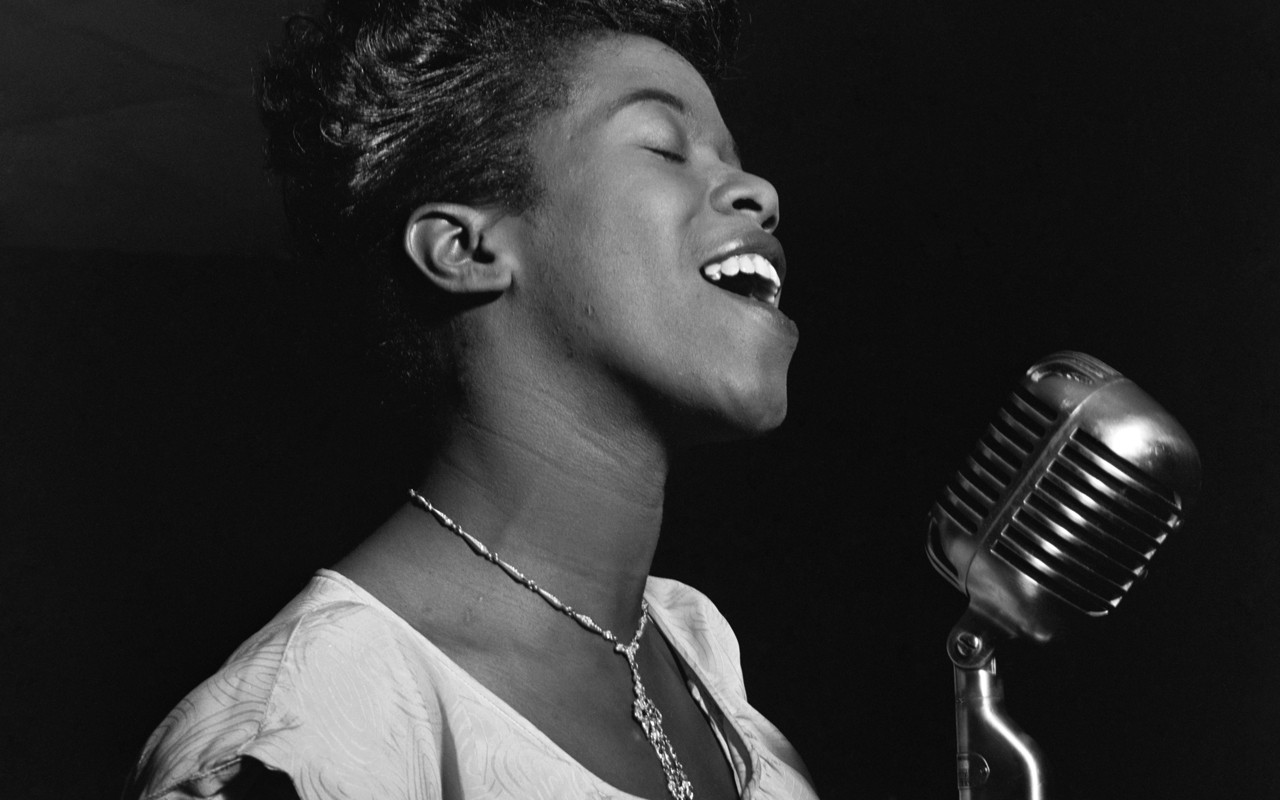
Sarah Vaughan photo by William P. Gottlieb.
Tuesday, March 12, 7pm
Kirkland Arts Center
620 Market St
Kirkland
Seattle jazz historian and author Elaine Hayes discusses her biography, Queen of Bebop: The Musical Lives of Sarah Vaughan (Ecco, 2017), with Earshot Jazz Executive Director, John Gilbreath on March 12. Following the reading and discussion, local vocalist Gail Pettis performs a selection of her interpretations of Vaughan’s songs.
One of the most celebrated jazz vocalists, Vaughan’s storied career is outlined lovingly by Hayes in Queen of Bebop. The book is “a lively and moving portrait of the passionate and tenacious jazz singer. Hayes gracefully narrates Vaughan’s life [providing] a detailed look at a fearless singer who constantly moved into new musical territories and left a legacy for younger musicians” (Publishers Weekly).
Hayes first heard Vaughan’s music while in college. Recalling the discovery, Hayes tells NPR’s Ray Suarez that she was impressed by Vaughan’s unique and masterful voice, which rang out with a marvelous array of big swoops, scats, vibrato, and harmonic tension.
Amongst a musical milieu of jazz legends, including Ella Fitzgerald, Vaughan forged her own path to stardom. Growing up in Newark, New Jersey, she learned piano and cut her singing teeth, like many around her, in church choirs. After getting hooked on jazz artists, including Count Basie, Vaughan would skip school to watch live shows. By the time she was fifteen, she was already performing as both a pianist and vocalist at local clubs. With courage and self-confidence, in 1942 Vaughan braved the rowdy crowds at the Apollo Theater on amateur night, and her rendition of “Body and Soul” earned her an audition with Earl Hines, whose band she soon joined.
She performed over the years with such jazz icons as Charlie Parker, Count Basie, and Dizzy Gillespie among others before embarking on a successful solo career. Vaughan defined her own terms by rejecting the constraints of music genre labels in part by refusing attempts to conform to music that managers and record labels chose for her. Instead she created complex music that was sophisticated harmonically and rhythmically, but she also made music that audiences connected with on a deep emotional level. Queen of Bebop outlines how Vaughan pushed back against the many gender and race barriers of her lifetime to enjoy a stunning career that spanned decades. Her famous monikers were “Sassy” and “The Divine One,” epitomizing two of her most important characteristics: her audacity and the awe-inspiring power of her person and her voice.
Elaine Hayes has a doctorate in musicology from the University of Pennsylvania. She is an expert on Sarah Vaughan, having pursued extensive research, including oral history gathered from interviews with the late singer’s friends and colleagues. Hayes is passionate about sharing her knowledge through her lectures and writing to preserve the legacy of this artist’s unique story, which reflects not only the history of jazz, but that of the American experience. Her blog, Lady Be Bop, focuses on women in music and popular culture, both past and present.
Bringing the music into the now, Gail Pettis pays tribute to Vaughan through a selection of songs, accompanied by pianist Darin Clendenin. Pettis’ own story is in itself fascinating, having found Seattle and a career in jazz by way of orthodontics. One of Seattle’s most sought-after vocalists, Pettis draws her audiences in with honest interpretations, attention to lyricism, and captivating storytelling. She’ll offer insights into what she, as a vocalist, gleans from Vaughan’s contributions to the art form. –Editor
Tickets and information available at earshot.org.